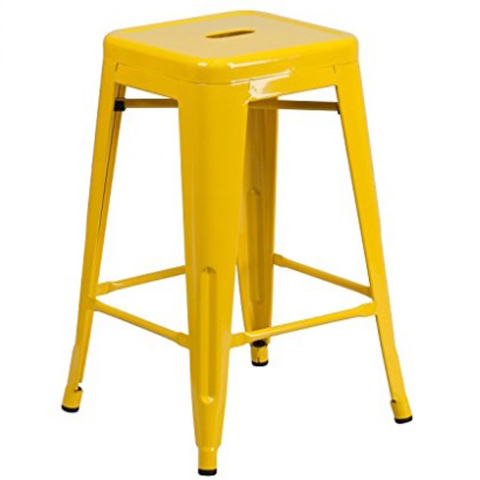As my husband and I move in a conscious direction toward minimalism and a more simple lifestyle, our entire family is being impacted. We have seen huge positive changes in our children. Today I will discuss the top ways I have observed that minimalism benefits kids.
.jpg)
Many think of minimalism as a trend for adults wanting to take a breather from the fast paced, over-cluttered life they had been stuck in. In actuality, however, it is a lifestyle that benefits all generations. The youngest members of a family, the children, may in fact be the most impacted by minimalism. The habits they form early in life will set them up for success in a variety of ways.
HOW MINIMALISM BENEFITS KIDS
One of my resolutions for this year is to look for inspiration from those who have gone on this journey before us. By reading about other families experiences, and observing our own children through this transition, I have found the following to be the top ways that minimalism benefits kids.
FEWER DISTRACTIONS
We all know that spending time in a clean space can lead us, as adults, to be productive. When children live in a clean home they are also better able to better focus on tasks. Homework, for example, is much easier to tackle when the child isn’t tempted by a mountain of toys or variety of video games.
.jpg)
Distractions can present in a variety of ways. Though we think most often of physical distractions, other obstacles such as worrying can divert just as much attention. The stress that is relieved by not having to deal with, clean, and keep track of un-necessary items or events is important to note as well.
Fewer distractions also means that there is room for focused attention. Your child may find that they have a knack for sewing, a love for reading, or a passion for acting. By eliminating the unwanted distractions in life, they can better focus their energy on the things they love.
LESS LIKELY TO LOSE THINGS
How many times have you been ready to leave the house when your child complains that he or she can’t find a shoe or backpack? The sudden scramble to find the missing item quickly escalates into hard feelings between parent and child. Feelings that can easily be avoided.
It’s no secret that items are easier to find when they are given a ‘home’ and are returned there after each use. This is a technique that parents can set up and encourage their children to follow. Of course, there will be some trial and error, but the benefits of this habit are worth the effort.
.jpg)
A child is more likely to take better care of, and track of, their personal belongings when they see them as being important. One shoe missing of fifteen pairs owned probably won’t seem like a big deal to them. Grabbing a different pair out of the pile is easy. But if the child owns only two or three pairs, the loss of a shoe will make a much larger impact.
MORE CONFIDENT DECISION MAKERS
It is easy to become overwhelmed when faced with a lot of choices. As adults, we are faced with many decisions each and every day. What should we wear? What should we eat? Is this event something I want to attend? When children are given too many options they can become mentally paralyzed, worrying about making the right choice.
.jpg)
In this way, fewer choices can actually help children become more confident in their decision making. Choosing one shirt to wear from four options is much easier than choosing from a pile of forty. Each successful decision made will add to the child’s confidence. This confidence will then spill over into more important life decisions, such as choosing relationships that are healthy and behaviors that are productive.
BLOSSOMING CREATIVITY
One of the most frequently listed minimalist benefit for kids is their ability to be creative with the things they have. Children have the amazing gift of imagination. Surrounding them with too many play things that ‘entertain’ them actually hinders and stunts their ability to be imaginative.
Some of the best toys that you can have on hand for your children include those that promote open ended play. Wooden blocks that can become roads, towers, or dining plates. Art supplies that can be manipulated into endless creations.
.jpg)
Many minimalists also note that with fewer toys their children spend much more time outdoors. Outdoor play has many benefits, including the access to fresh air and natural vitamin D. Creativity also blossoms in nature, especially in the use of large motor skills. Fort building, scavenger hunts, or an exciting game of hide and seek in the woods are just a few examples.
IMPROVED SHARING ABILITY
Minimalist children tend to be less possessive and have a lowered sense of entitlement. That’s not to say that they won’t still admire items when walking through a store, for example. The difference is that though they may voice their pleasure of an item, they don’t long for it in an unhealthy way.
.jpg)
Because they understand that things are just things, it isn’t as difficult for them to share with their siblings, for example. They know that even if the item breaks or gets damaged in some way, it won’t be the end of the world. Kids who grow up in a minimalist environment learn early on that happiness doesn’t come from what you own.
STRONGER RELATIONSHIPS
When it comes right down to it, I firmly believe that the main goal of minimalism for most people has less to do with belongings and more to do with relationships. And so, it is wonderful to note that one of the greatest benefits that minimalism affords children is a stronger bond to those they are close to.
.jpg)
That age old sibling rivalry of making sure everything is ‘fair’ begins to break down. No longer are they concerned about having more, because they realize that more doesn’t always mean better.
The time commitment that parents may have been spending handling all their belongings is lessened through minimalism. Those hours are re-allocated as quality time with their spouse and children.
These stronger bonds create a more open dialogue between all family members. Since it is no longer the norm to hide junk behind cabinet doors or under the bed, the hiding of secrets or emotions isn’t commonplace either.
FAMILY MINIMALISM MOVEMENT
There are many families who are shifting their focus to live a more minimal lifestyle, in an effort to regain time with each other. These families realize the importance of their relationships over belongings. I have teamed up with a group of blogging moms who are on this journey and have seen how minimalism benefits kids. Check out their blogs and social media accounts for additional tips and encouragement!
Not Your Average Fox | Minimalist Hospital Bag Essentials
Little Me + Family | Minimalist Baby Play Area
Faith and Family Farmhouse | Becoming Intentional With Toys
This Corbett Life | Embracing Minimalism Through Motherhood
HOW MINIMALISM HAS BENEFITED (OUR) KIDS
In this video I discuss examples of some of the ways our own five children have benefited from a more minimal and simple lifestyle.
We are excited to continue on this path, especially as we move into our new home, Arrow Hill Cottage. This home has been designed to meet our basic needs in an efficient way. Any luxuries that it includes have been well thought out and deemed beneficial for individual family members as well as the family as a whole. Moving into this new home will mark a major, pivotal shift for our family. I would love it if you could follow along with us on this journey. We should be breaking ground and begin construction in just a couple of months!
WHERE TO START FOR KID MINIMALISM
It all starts with you. Behavior modeling is so important and impactful for children. They will see your mood change as you clear the clutter. They will realize how much more time you have for them. When mom and dad are no longer arguing about all the junk laying around, they kids will notice.
And at some point along the journey, the kids will realize that this isn’t just something that parents do. It is something that families do. Families that care more about each other than material items. And they will ask what they can do to pitch-in on the effort.
.jpg)
Then, help them go through the toys. You will likely be blown away by how easily your children are able to choose which items to keep and which to part with. The truth is that, for most kids, many of the items they claim as theirs came by way of your pocketbook. Their attachment to them is only surface deep. Either they play with it, or they don’t. Let them make these choices and you will see a snowball effect when it comes to other categories, such as clothing.
PIN THESE INSIGHTS
Thinking about a more minimal life for yourself and your family? Use these insights about how minimalism benefits kids as motivation to take the leap! In the end, you will end up with fewer things, yet so much more overall.
.png)





As a Grandma, I had to get on board too with fewer gifts for birthdays, Christmas and gifts for no reason! It’s been hard but also freeing for me.
Yes, and wasn’t the ‘no gift’ Christmas just so amazing?! Loved it!
Very interesting to hear your thoughts on this. My kids have a lot of toys mostly hand me downs and gifts. Of course they play with hardly any!
That’s exactly what we were dealing with before – tons of toys received as gifts that they would play with for a few days, and then go back to their favorites!
These are great tips! We raised our kids to be outside and not on electronics. They were in 4H which kept them very busy and they were able to learn lots of responsibility.
4H is so great for that, we have definitely considered getting our kids involved in that program!
I so wish minimalism was something that was talked about when my kids were little! This could have benefited our entire family! Thanks so much for such great information!
I am so thankful that we are simplifying life now, when our kids are still pretty young.
Very interesting to read your perspective on the advantages of minimalism. Raising children who feel loved and supported is important. It’s great that you try to incorporate them in making choices.